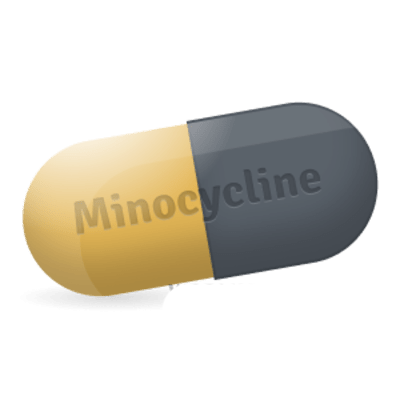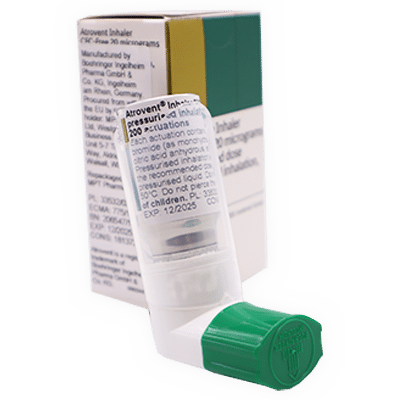I used Minocycline to treat acne and I am happy with the results. After a few weeks, my skin cleared up noticeably and inflammation decreased. The side effects included a bit of motion sickness at the beginning of the course, but I got used to it later.

Minocycline
- Quality products
- Support 24/7
- Fast delivery
What is it?
Minocycline is an antibiotic used to treat a variety of infections, such as bacterial infections of the skin, respiratory tract, and other organs. Its unique properties make it effective not only in treating these conditions, but also in relieving severe acne when other medications have failed. This medication is designed to kill or suppress the growth of bacteria in the body, allowing the immune system to recover and fight the infection more effectively. Minocycline can be prescribed on its own or in combination with other medications to enhance its effect. It is especially useful for patients who suffer from infections that are resistant to other antibiotics.
Composition
The composition of Minocycline includes the active substance minocycline, which belongs to the group of tetracycline antibiotics. This component affects bacteria, preventing their reproduction and thereby promoting their destruction. In addition to the main active substance, the drug may contain auxiliary components that ensure the stability and digestibility of the drug.
- Minocycline is an active substance, the main purpose of which is to destroy bacteria.
- Excipients that maintain the consistency and effectiveness of the drug.
- Capsule shell, facilitating swallowing and protecting the active component.
Each of these components plays a role in the overall effectiveness of Minocycline, ensuring long-term storage of the drug and its safe use. It is important to note that the exact composition may vary slightly depending on the manufacturer and form of release.
How to use?
Minocycline requires following the doctors recommendations, so it is extremely important to study the instructions before starting treatment. This will help to avoid side effects and increase the therapeutic effect. The drug is available in various forms, including capsules, and depending on the doctors prescription, the nuances of its use may be determined.
- Take Minocycline at a strictly allotted time each day to maintain a constant level of the drug in the blood.
- Some brands can take the drug with food, while other forms require taking on an empty stomach - it is better to check with your doctor.
- For better dissolution and absorption of Minocycline, it is recommended to drink a full glass of water.
We must not forget to follow the prescribed course of treatment. Even if the condition improves, you should not stop taking the drug prematurely, as this can lead to a relapse of the infection.
How does it work?
Minocyclines mechanism of action is based on its ability to inhibit bacterial protein synthesis, which slows down their growth and reproduction. This process allows the bodys immune system to more effectively destroy the remaining bacteria, preventing their re-development. Minocycline belongs to the class of tetracycline antibiotics, which are known for their ability to fight a wide range of microorganisms.
Particular attention should be paid to the fact that Minocycline can be cumulative, which allows for a faster therapeutic effect when taken regularly. At the same time, this requires caution to avoid overdose and associated side effects. Ultimately, Minocycline provides infection control, eliminating its sources and relieving symptoms in patients with various bacterial infections.
The complexity of Minocycline treatment can lie in selecting the correct dosage and duration of administration, especially in the case of chronic or recurrent conditions. Due to its effectiveness and versatility, Minocycline is widely used in medical practice.
Indications
Minocycline is suitable for the treatment of various infections, especially bacterial ones, requiring effective action of the drug. Its powerful properties allow it to be used in various cases where other therapy does not give results.
- Treatment of skin infections, including severe acne, resistant to other drugs.
- Respiratory tract infections that are poorly treatable with traditional antibiotics.
- Systemic infections that require aggressive antibacterial therapy.
This drug can also be used in specific therapeutic regimens in combination with other agents when complex treatment and relief of infection is required. It is important to understand that Minocycline is prescribed in case of confirmed bacterial nature of the disease and will not be effective against viral infections.
Contraindications
However, Minocycline is not recommended if the patient has contraindications. This may include an allergic reaction to the components of the drug or the presence of certain medical conditions that may affect the metabolism or effectiveness of the drug.
- Allergy to tetracycline antibiotics or any ingredients in the drug.
- Concomitant use of certain drugs, such as methoxyflurane or certain antifungals.
- Certain liver or kidney disorders that require dose adjustment.
Consultation with a doctor and appropriate tests will help to avoid possible negative reactions and choose a safe treatment plan that takes into account all the health characteristics of the patient.
Side effects
Side effects that Minocycline can cause are usually related to its effect on the body and disruption of the normal functioning of systems. Most of them are temporary and disappear when treatment is stopped, but some require immediate medical intervention to prevent worsening of the condition.
- Nausea and vomiting, which can result from irritation of the gastrointestinal tract.
- Headaches and dizziness caused by the effect on the nervous system.
- Skin rashes or other allergic reactions to the drug.
Patients should be attentive to their condition and immediately consult a doctor if unusual symptoms occur. This will help ensure safe treatment and avoid unwanted consequences of the drug.
Frequently asked questions
Minocycline Reviews and Experiences
My doctor prescribed Minocycline to me for a long-term respiratory infection. I feel better after a few days, which other antibiotics couldnt do. I was a little confused by the need for regular use, but these are the rules.
While taking Minocycline, I developed a slight rash, but the doctor told me to continue the course, as the effect of the treatment was very pronounced. I cant ignore the prescription, so now Im closely monitoring my health.









